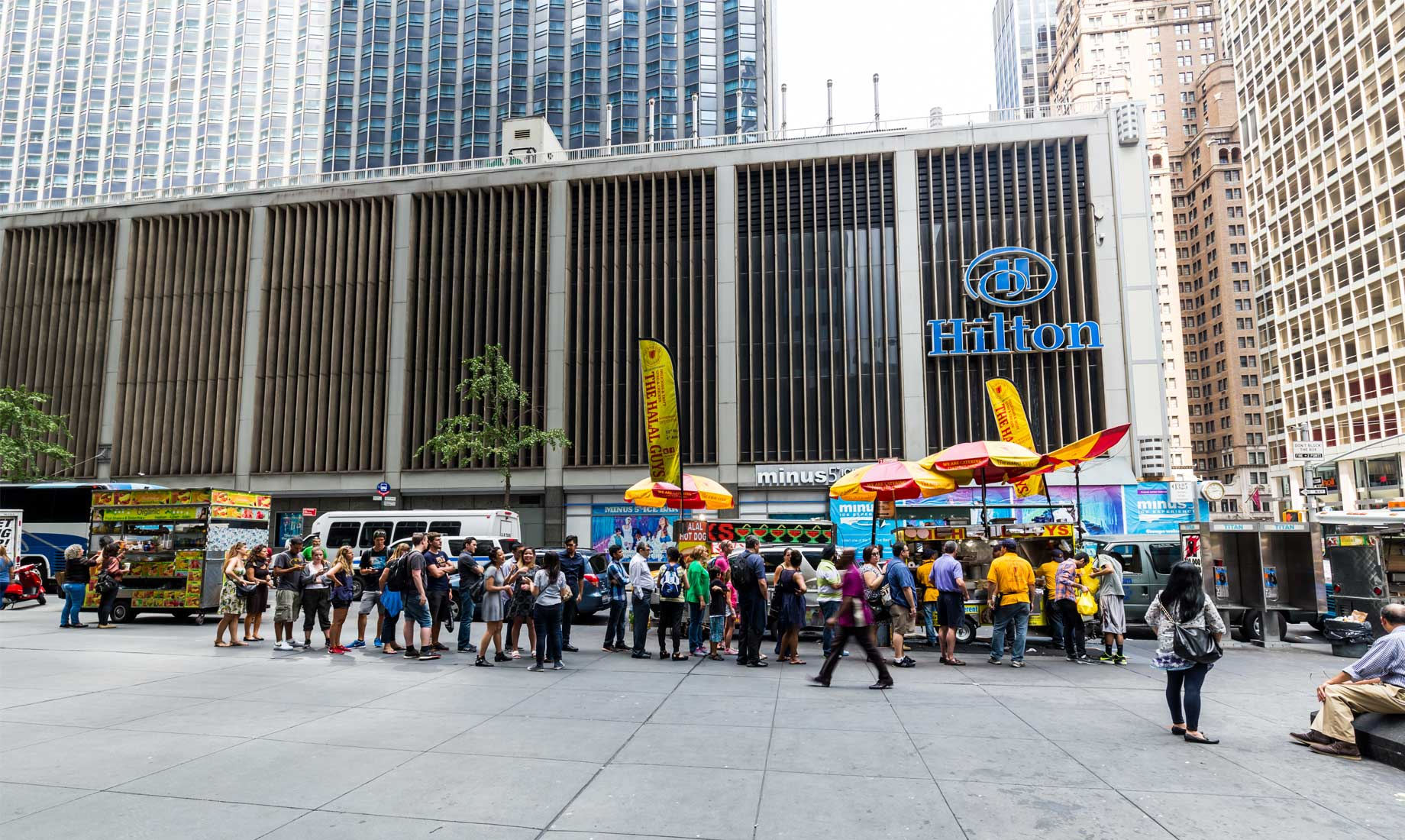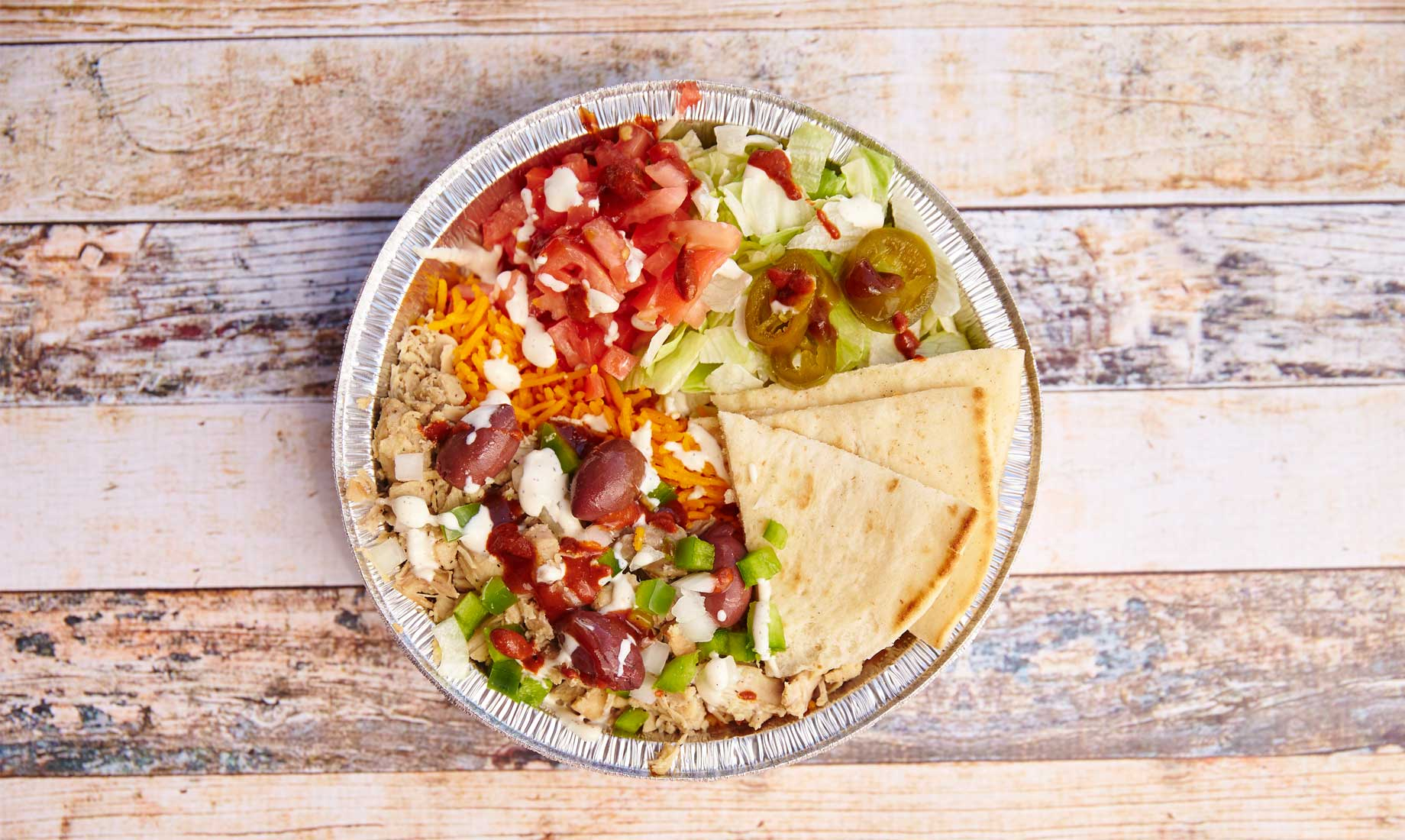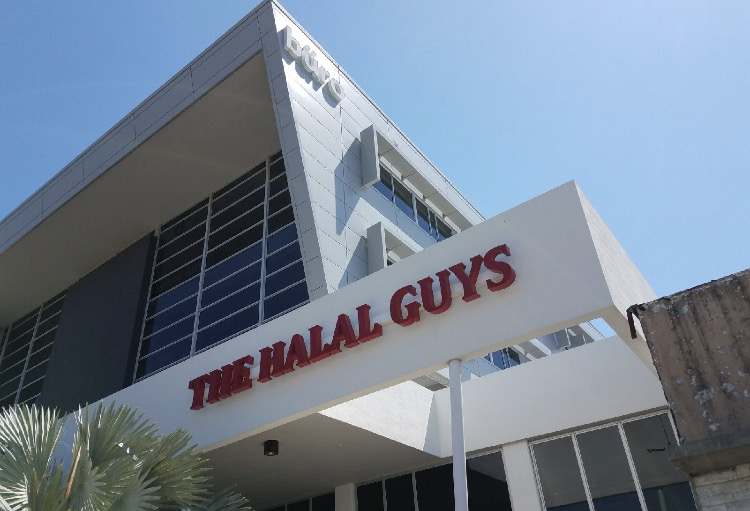In 1990 three Egyptian immigrants with a middling hot dog cart in New York City ditched the wieners and the pretzels in favor of rice platters and gyro sandwiches. At first the three — Mohammed Abouelenein, Ahmed Elsaka and Abdelbaset Elsayed — catered to Muslim cab drivers who would otherwise have to cross a bridge into Queens to find any meat slaughtered in accordance with Islamic law. But before long, the old-country flavors, large portions and bargain prices made their Midtown food stand, The Halal Guys, a favorite of area office workers and international tourists willing to brave its famously long lunchtime lines.

The Halal Guys got their start on a New York City food cart
Today the specialties these pioneers popularized are a New York City staple, imitated by hundreds of knockoff food carts. Their original cart, at 53rd Street and 6th Avenue, remains as popular as ever, but their original recipes can now be had also at Halal Guys restaurants across the U.S. and in four overseas territories. The company, which began franchising in 2015, has quickly ballooned to 77 shops, with nine opening this month, for a total of 30 that will have opened in the course of this year alone. Terry Wilson, the company’s director of franchise operations, anticipates that the unit count will double next year. “I’d say within 10 years, we’ll be at 1,000 stores [worldwide],” Wilson said. “We have the foundation and the operational structure for that [already] in place.”

Consumers with a taste for Mediterranean cuisine and an appetite for healthy food have been key to The Halal Guys' success, one expert says
The Halal Guys is casting a wide net. Its overseas units — 10 at present — are sprinkled throughout places as disparate as Jakarta, Manila, Seoul and Toronto. The concept is already operating in 18 U.S. states and Washington, D.C. Franchise agreements are in place for an additional 450 units, including 20 in the U.K. “We’ve done a good job of development through the West Coast, South and East Coast,” Wilson said of the chain’s U.S. coverage. “Now we’d like to fill up that middle section of the country.”
Middle Eastern and Mediterranean cuisine is a growing category in the U.S. Notable players include Plano, Texas–based Zoës Grill (with 262 units across 20 states); Betheda, Md.–based Cava (73 across nine states and the District of Columbia); and San Diego–based Luna Grill (51 units between California and Texas). “All these chains experienced solid sales growth in 2017,” said Kevin Schimpf, an industry research manager at Technomic, a Chicago-based restaurant consulting firm. “While the Middle Eastern [and] Mediterranean space is growing, it’s still relatively immature overall and has significant headroom to grow over the coming years. It doesn’t hurt that consumers typically perceive the cuisine to be a healthier alternative to the more traditional limited-service menu categories.”

The Halal Guys recently opened a unit in Miami
With an average ticket below $10, The Halal Guys can also tout a lower price point than many of its rivals. And it is the only chain of its size in the U.S. with a menu that is fully halal-certified. “We go through an extensive process of verifying that cleanliness and halal standards are met,” Wilson said.
The company typically wants its units to measure between 1,100 and 2,000 square feet. Its smallest is a 700-square-foot kiosk at the The Forum Shops at Caesars, in Las Vegas, and the largest is a 2,500-square-foot freestanding building with a drive-thru, currently under construction in La Grange, Texas. Both of these are tests for The Halal Guys, which typically prefers in-line locations at outdoor shopping centers. “When we are looking at locations, we are looking for other restaurant and dining options,” Wilson said. “We believe competition is healthy.” Locations near hospitals and college campuses also hold appeal.
The idea locations are in cities, college towns and larger suburban markets with a diverse consumer set and an “appreciation for the authenticity that is key to their branding,” said Schimpf. Beyond that, “being able to draw a lunchtime crowd is critical.”
Leasing inquiries may be directed to https://thehalalguys.com/contact/.
By Jesse Serwer
Contributor, Shopping Centers Today


